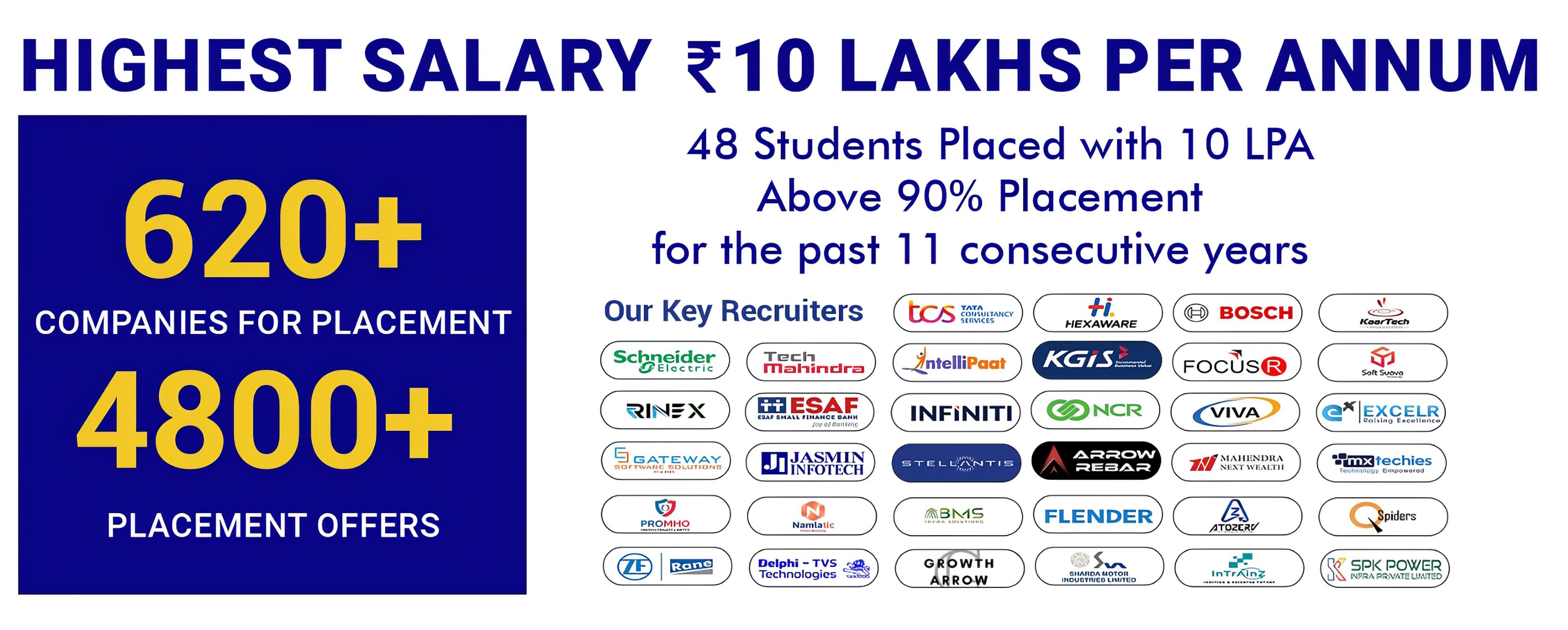Biomedical Engineering department has been started in 2022 which is offered as a full-time course. The department is intended to work closely with medical researchers to identify important problems that impact human health and solve them using the technical expertise. It engages motivated and talented students in the classroom, laboratory, and clinic. The spirit of college mission is focused through effective, knowledgeable, and ethical leaders in corporate, professional, and academic communities. The department of Biomedical Engineering has excelled in its infrastructural facilities keeping pace with the latest development in technologies. Besides teaching, the department is actively involved in molding the students for placement, Hospital visits, Internships, projects, conducting training programs for students, and making them to be self-supportive.
VISION
To create biomedical engineering graduates through value-based education and research with good health and wellness for all through engineering innovation.










